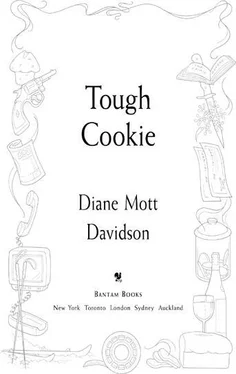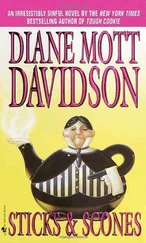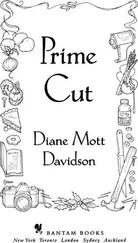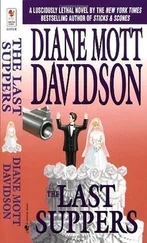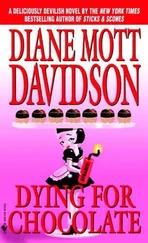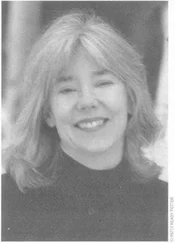The next week’s discouraging report on The Jerk must have engendered some guilt on Doug’s part. He pulled out tickets to a Denver showing of military memorabilia. Arch and Doug and I strolled past exhibits of samurai swords, bloodstained maps of battlegrounds, state-of-the-art grenade launchers. I found it boring; six-year-old Arch had been in heaven. Doug sprang for vendor hot dogs outside Currigan Hall. He liberally squirted on ketchup and rattled on about his volunteer work at nearby Capitol Hill. It seemed Doug was campaigning for a friend who was running for the state senate. I dislike guns, I dislike hot dogs, and I find the state senate boring. Arch sagely assessed my mood while pasting mustard on his wiener; on the way home, he asked if the end of my relationship with Doug Portman was in sight.
Through the spinning flakes ahead, the tube of the Eisenhower Tunnel finally yawned. In the lane next to the van, another driver went too fast and careened off the median before straightening out.
When Doug had slapped his final report on my kitchen table, he’d assessed my rack of pots and pans and demanded, “What’s cooking?” I’d smiled. I’d announced that nothing was on the menu but a trip to my lawyer. This had marked the end of my nonromance with Doug Portman, forensic accountant, artist, and bore. I’d received the house, a sixty-thousand-dollar divorce settlement, and a sizable adjustment in child support. Doug, with his ego, paintings, and plans, had been a man on the way up—and out of my life.
On my final approach to the tunnel, I tried to remember what Marla had told me about what had happened to Doug. He had married Elva, just the kind of wealthy woman he needed. He’d given up accounting and moved to Killdeer, where he’d become involved in Elva’s art gallery in addition to his own increasingly political commitments. His candidate had been elected; Doug himself had become involved in building high-end condos while writing about the arts for a regional newspaper. Someone must have told me he came to Sheriff’s department functions because he was connected to corrections. What I’d never guessed was that his political benefactor had made him chief of the state parole board.
If I was going to avoid even more suspicions about what was going on with my business and my life, I was going to need to find out more, I determined as I squashed down on the accelerator. And not only was I going to find out all about Doug Portman, I was going to find out the exact status of John Richard’s stint behind bars.
Without warning, the van lurched forward. Wild honking burst from all quarters. A car had hit me from behind. I yelped as another hard thud shook the van and my teeth. More cars honked, but in the suddenly thicker snowfall I couldn’t see the vehicles around me. My van slid across the left lane, where the bumper hit the divider with such force my neck snapped forward. I spun the steering wheel, but balding tires on ice have a life of their own. Another sickening thud sounded against my rear bumper.
It was a pileup, I realized helplessly. I was the second domino, behind the pickup truck. But where was the truck? A grinding crash of metal on metal thrust me forward. I gasped as the van skated back across the lanes. Another bang resounded. The van skidded inexorably toward the guardrail. I saw a fleeting image in my rearview mirror, a horrified face. I braked again. It was hopeless. Another car whacked me broadside. My van crashed through the guardrail and I was airborne.
CHAPTER 7
Down, down, down the snow-covered hill the van flew. I was sure I would die. An internal brain screen flashed images of my younger self on the Jersey shore with my mother. Then I was holding Arch as a newborn. Pain shot across my back. Warm liquid ran up my arm. I saw Tom slipping the wedding ring on my finger. I thought, But what will he have for dinner?
The van slammed into something hard, jolting me forward. A wave of shadowy whiteness obscured the windshield. The van again bounced onto something hard—a boulder?—and shuddered. My vehicle flipped over, then flipped back. I was screaming. Then, with a terrifying boom , the van hit another rock. The windshield shattered. A shock wave of icy snow hit me in the face.
Suddenly, everything went still. I had the confused thought: Arthur’s intake meeting. I won’t be able to cook this afternoon . It seemed terribly easy to lie still and sleep…. I’ll bake the librarians’ cookies tomorrow… .
I don’t know how long I was unconscious. Suddenly, a distant voice called, “Hello?” My voice wouldn’t obey my brain. I shook my head; snow slithered from my hair. I felt very, very cold.
Pawing and scraping sounds were audible overhead. “Hello?” the voice called again. I groaned and called back, “Yes,” in a submerged voice. Actually, the rest of me was underwater, technically speaking. I wondered if I was frozen. I laughed weakly. Pain rippled through my chest and down my arm. Was there anyone else in the van with me, the voice asked.
“No,” I tried to howl but it came out like a sob.
I should not attempt to move, the voice cautioned. I didn’t want to move. I was breathing raggedly; my lungs hurt. Blood seeped down my arm. I squirmed: More snow fell away from my face. Suddenly, I was desperate to act. I reached up until my mittened hands were clear, waving in the blessed air. I called that I could get out on my own. Before I could do so, however, strong hands reached in and gently tugged me out of my prison.
The cold wind was a bitter shock. Something kept growling in my ear, like a huge mosquito. I was placed on a slanted stretcher. My head spun; my thoughts whirled. Always use unsalted butter in baking . Falling snow-flakes burned my eyes. I was on a sled, not a stretcher, attached to a puttering, exhaust-spewing snowmobile. The sled was set at an angle because of the slope. I coughed—which hurt—and blinked. I couldn’t see my van, but I could make out three men in uniforms. One of them was bent over my arm. I wrenched sideways on the sled to see what he was doing, but I was strapped in. The movement afforded me a look at my vehicle. The van looked like a squashed beer can—one that would never be recycled.
The men asked me my name and address. I almost giggled, thinking that this was the third time today uniformed people had come to my rescue. That had to be a record. I heard my rusty voice answering them, thanking them. I asked how my arm was, and heard: “Cut. Not too bad.” They said I needed to go to a hospital in Denver. I mentioned my clinic in Aspen Meadow. It had an X-ray machine, a doctor on duty, and was an hour closer than Denver to our present location. “It’s where I live,” I added, although I had just told them that. “My home.” Home. My home. Oh, Lord, when will Tom finish our kitchen? I started to sob, and the men clucked that I was lucky to be going anywhere.
Commotion on the roadway accompanied the arrival of two ambulances. Panicked, I asked if others had been in the accident. The officers looked at each other, then told me not to worry.
One fellow gently probed my neck. A lump of fear squeezed my throat shut as I peered down the hill. There was a smashed white pickup truck below my van. Its skewed, crushed cab was buried in snow. I couldn’t see if anyone was in the front. The slope was strewn with debris and snow chunks churned up by the collision.
A horrific worry sprang into my consciousness: Had it been the pickup truck, and not a boulder, that had cushioned my van’s landing? I said a silent prayer for the truck driver.
Two newly arrived paramedics checked my bones. In the swiftly falling snow, it was hard to get bearings, but from what the people around me were saying, it seemed the van and the pickup had landed on an outcropping that formed a cliff in the steep bank. Below us, the slope was precipitous, at least forty degrees, and formed a ravine with the high forested ridge running into the Divide. At the bottom of the deep gulch between the two hills, who knew how deep the snow was? Ten, fifteen, twenty feet? I shuddered.
Читать дальше
